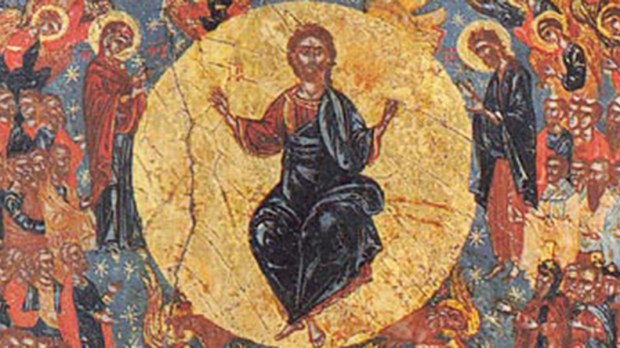“Maranatha” is an Aramaic phrase (not a word) that occurs only once in the New Testament, at the end of Paul’s First Letter to the Corinthians.
Finding an Aramaic phrase in a Greek letter sent to a Greek church might seem strange, to say the least. But the phrase, by then, had already became some sort of synthesis of the hopes and spirit of the Early Church.
In fact, the phrase appears also in the tenth chapter of the Didaché, thus clearly being part of the Apostolic Fathers’ tradition. In fact, some authors claimed (for instance, the late Benedictine John Main, inspired by the Conferences of St. John Cassian) this phrase, because of its being so short, was already used as an early equivalent formulation of the Eastern Jesus Prayer:Lord Jesus Christ, Son of God, have mercy on me, a sinner. This prayer (regardless of the formula one chooses to use, either the “Jesus Prayer” or “Maranatha”) often repeated continually as a part of personal ascetic practice, has been esteemed by the spiritual fathers of most Christian traditions as a method able to bring about the Prayer of the Heart, considered to be the “unceasing prayer” that Paul advocates for in his Letter to the Romans.

Read more:
“If you have faith the size of a mustard seed …” What kind of faith is the Gospel referring to?
But what does the phrase “Maranatha” mean? It depends on how the word/phrase itself is split. Even more, both options have different theological and spiritual meanings.
It is not entirely clear what the actual “original” formula might have been, but if we decide to read the phrase as Marana Tha, then the formula includes a vocative next to a verb in the imperative. That is, the phrase would read as asking (or even, demanding!) the Lord to come: “O Lord, come!” This is, indeed, the kind of expressions one finds in the Book of Revelation (Revelation 22,20) and in the end of Paul’s First Letter to the Corinthians (1 Corinthians 16:22).
However, if we rather split the phrase as saying Maran Atha, then the meaning radically changes: it becomes an affirmation, a creedal expression that clearly estates “Our Lord has come,” an equivalent to the kind of claims one finds in Romans 10:9 and 1 Corinthians 12:3, where Paul affirms “Jesus is Lord.”
In both cases, Maranatha is an affirmation of faith in the Lord who became man and lived among us (Cf. John 1, 14) and who will come again. It is a messianic claim that expresses both faith in the Incarnation and the expectation of the Parousia.

